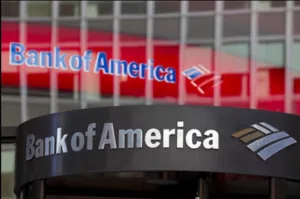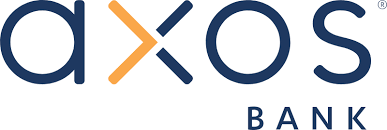
Business Checking Accounts That Don’t Use ChexSystems

Our editorial team is independent and objective. To help support our review work, and to continue our ability to provide this content for free to our readers, we receive compensation from the companies that advertise on the CreditMashup site. This site does not include all companies or products available within the market.
We also include links to advertisers’ offers in some of our articles; these “affiliate links” may generate income for our site when you click on them. The compensation we receive from advertisers does not influence the recommendations or advice our editorial team provides in our articles or otherwise impact any of the editorial content.
While we work hard to provide accurate and up to date information that we think you will find relevant, CreditMashup does not and cannot guarantee that any information provided is complete and makes no representations or warranties in connection thereto, nor to the accuracy or applicability thereof. Here is a list of our partners who offer products that we have affiliate links for.
Business checking accounts that don’t use ChexSystems can be a tremendous help to small business owners with past banking blunders.
In this guide, we’ll break down some of the top online no credit check business bank accounts that don’t use ChexSystems. Plus, we’ll go over what documentation may be required to open business bank accounts.
Business Checking Accounts That Don't Use ChexSystems
If you’re looking for a traditional business banking relationship with your local banker, these banks are not them. They are online business checking accounts that operate entirely in the digital banking sphere.
- Only $50 opening deposit.
- Zero minimum monthly balance requirements.
- Unlimited domestic ATM fee reimbursements.
- No monthly fees or minimum balance requirements.
- Member FDIC.
- New business owners get a $200 welcome bonus!
- Open a Basic Business Checking account using promo code START200 by June 30, 2026.
- Every dollar counts when you’re starting out. That’s why new businesses can earn up to $200 opening a new Basic Business Checking account today.
- No third-party app integrations.
- To qualify for the welcome bonus, a $3,000 average daily balance must be maintained for the first four months.
To be eligible to earn all or a portion of the $200 cash incentive under this promotional offer, a Basic Business Checking account application with the promotional code "START200" must be submitted between 01/30/2025 at 12:00 am PT and 6/30/2026 at 11:59 pm PT. You must be approved for your new Basic Business Checking account and fund the account within 60 days to avoid automatic closure. Promotional terms and conditions are subject to change or removal without notice. Incentive may be taxable and reported on IRS Form 1099-MISC or 1099-INT. Consult your tax advisor. After initial requirements above are met, the amount of incentive earned will depend on meeting the additional requirements outlined below.
To earn up to a maximum of $200, a $50 payout can be earned in any four (4) of the first five (5) statement cycles (calendar months), including the cycle during which the account is opened. To earn each $50 cash incentive, the average daily balance in your Basic Business Checking account must be at least $3,000 for that statement cycle. The incentive will be deposited into your Basic Business Checking account within 10 business days following the end of the statement cycle during which the balance requirement was met, as long as the account is open and in good standing. The Basic Business Checking account must remain open for 180 days or an early closure fee of up to $200 may apply.
This promotion is only available to new Axos Small Business customers who:
-
Established their business less than one (1) calendar year from the date of application submission. Proof of formation date may be verified via the Secretary of State or Business Formation documents.
-
Have not held primary ownership of any Axos Small Business Banking account at any time.
This offer cannot be combined with any other new Axos Small Business account introductory incentive/bonus offer unless otherwise expressly stated in the conditions of that offer.
Minimum Deposit
$100
Monthly Fee
$10
Overdraft Fee
$0
APY
None.
Minimum Deposit
$0
Monthly Fee
$0 for Standard Checking
Overdraft Fee
$0
APY
Up to 2.50% APY
- Earn up to 2.50% APY
- 0% cash back on card transactions2
- 1.50% same-day ACH payments
- $1.00 physical checks
- $20.00 domestic wire send
- Reimbursement for up to six third-party ATM fees
- Get instant deposits from Stripe, Amazon, PayPal, Square, Venmo, Cash App, and more
- North One Plus Checking has a $30 monthly fee.
- Can’t send or international wires.
Minimum Deposit
$0
Monthly Fee
$0
Overdraft Fee
$0
ATM Fees Reimbursed
Up to $7 per month
- $0 Minimum opening deposit.
- Integrates with top business tools, including QuickBooks, Xero, Stripe and Shopify.
- Unlimited fee-free transactions.
- Connections to thousands of business apps.
- Integrated payment services.
- No monthly fees or minimum balance requirements.
- Can’t deposit cash.
- Can’t send domestic or international wires.
Types of Documents that may be required to open a business checking account
Banks will have their own policies so you’ll have to evaluate on a case-by-case basis. But most banks are required to verify your business as well as the persons associated with the business by obtaining certain documents.
Depending on how you structure your business entity, a bank may run a ChexSystems report to see how you’ve managed past checking and savings accounts. For instance, a sole proprietor will likely be required to provide an SSN (Social Security Number) that can be used to run a ChexSystems report.
However, LLCs and Corporations that have an EIN (Employer Identification Number) may not have a ChexSystems report pulled.
Based on your business type, you may need one or more of the following documents issued by a Government agency:
Sole Proprietor. If the business name does not include the legal first and last name of the owner, you will need additional documentation. For example: If the owner’s legal name is Lisa Phillips, and the business name is Phillips Furniture, you will need additional documentation.
However, if the business name is Lisa Phillips Furniture you will not. The additional documentation needed would be one of the following documents:
- Fictitious Name Certificate or DBA (doing business as)
- Certificate of Assumed Name
- Business License
- Registration of Trade Name
Limited Liability Company (LLCs) You will need one of the following business documents:
- Articles of Organization
- Certificate of Organization
- Certificate of Formation
Corporation You will need one of the following business documents:
- Articles of Incorporation
- Certificate of Good Standing
General Partnership You will need one of the following business documents:
- Partnership Agreement
- Fictitious Name Certificate or Statement
- Certificate of Assumed Name
- Business License
Basic Information on the business owner for all types of business structure
- Personal address
- Mobile phone number
- Email address
- Date of birth
- Social security number
ChexSystems is primarily used to report on consumer banking transactions. But just like a personal guarantee may be required to open a business credit card, your personal banking history can impact your business checking account.
Having negative items on ChexSystems is similar to the albatross of bad credit. It attaches itself and screams to banks “Risky – Do Not Approve!”
Banks use your personal checking account management habits as an indicator of how you might manage a business checking account.
Separating your personal and business finances is one of the first necessary actions you should take when starting a business.
A business checking account makes it easier to qualify for business financing like a merchant cash advance, business loan, microloan, and business credit.
Why business owners need a business checking account
It’s essential for business owners to have a separate business checking account from their personal checking account for several reasons:
Legal Protection. One of the primary reasons to have a separate business checking account is to establish a clear line between personal and business finances.
This separation is crucial because it provides legal protection for business owners if their business is sued or audited. It also simplifies accounting and record-keeping, making it easier to track business expenses and profits.
Professionalism. Maintaining a separate business checking account adds a layer of professionalism to a business. It creates an image of a legitimate business and shows that the owner is serious about their business.
Tax Reporting. Separating business and personal finances makes tax reporting much more manageable. Having a separate account makes it easier to identify and track deductible business expenses, which can help business owners save money on taxes.
Financial Organization. A separate business checking account can help business owners keep their finances organized. It allows them to track their business expenses, income, and profits separately from their personal finances.
This separation makes it easier to understand the financial health of the business and make informed decisions based on financial data.
Having a separate business checking account is a smart and necessary decision for any business owner who wants to protect their assets, maintain a professional image, and keep their finances organized.
Here are some management tips to help keep your business checking account in good standing:
- Deposit business income.
- Use the business account just for business expenses. Never use a business bank account for personal use.
- Track business expenses; this includes payroll, contractor payments, and investments in furniture or equipment.
- Use tools and alerts to keep track of account transactions.


CIT Bank Review: High-Yield Savings, Money Market & CD Accounts

5 Best Secured Credit Cards For Building Credit

How to pad your credit report if you have negative items

Can a charge-off account be reported as open

ChexSystems Account Abuse: Everything You Need To Know

How to Dispute a Fraud Notation in ChexSystems

ChexSystems Freeze: 5 Need To Know Facts

How to Structure a Small Business

Does Bank of America Use ChexSystems to open new accounts

What to do when a deleted credit item is re-inserted

Re-aging a credit account on credit reports is illegal

9 Steps To Start a Small Business

What is Revolving Credit?

Online Banks That Don’t Use ChexSystems – Nov. 2025

Best Online Bank Accounts For Free in 2025

ChexSystems Phone Number: What you should know before you call


What to do when you have no credit score and no credit history

Is the opensky® Secured Visa® Credit Card Right for You?
Content
Who We Are
Get In Touch
6080 Center Dr, 6th Fl
Los Angeles, CA 90045





